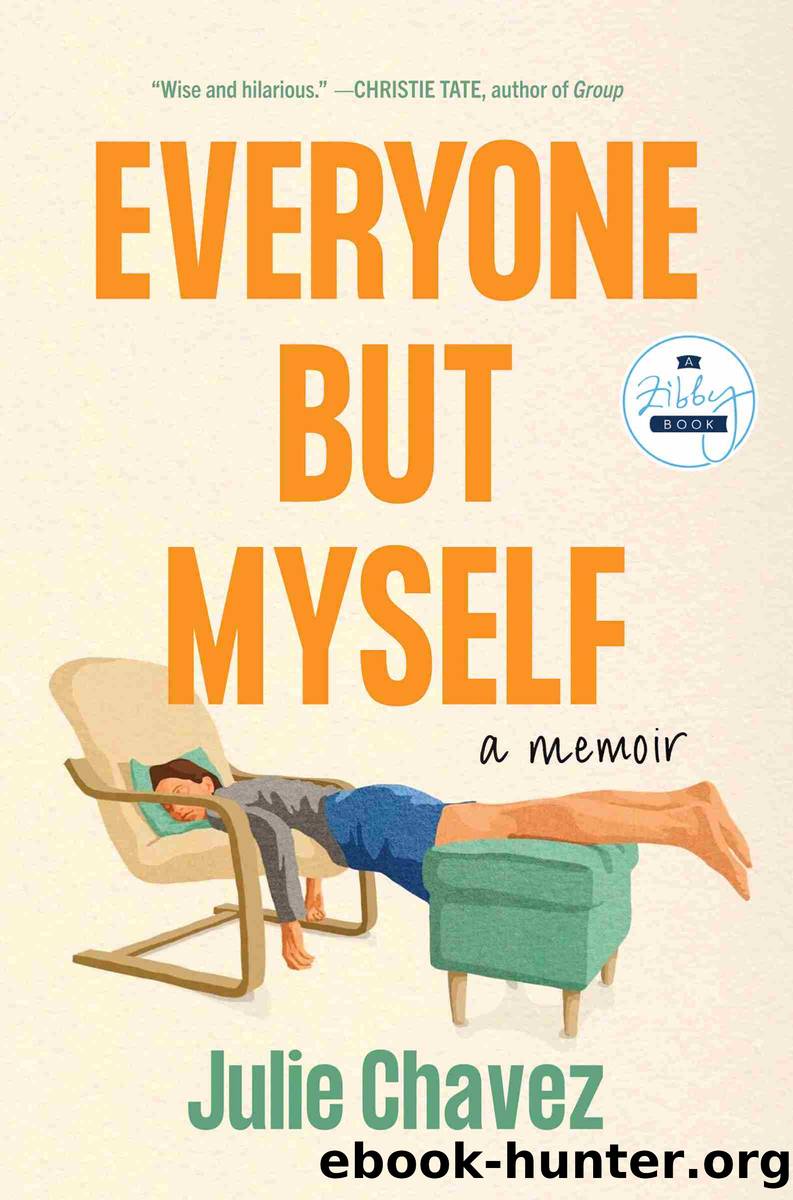Everyone But Myself by Julie Chavez

Author:Julie Chavez
Language: eng
Format: epub
Publisher: Zibby Books
When Eli was two, our brand-new pediatric ophthalmologist told us that he would need eyeglasses.
In the dark exam room with a mural of the ocean on the wall, Eli dug through a pirateâs chest of prizes while the ophthalmologist explained Eliâs eyes to me. I learned that his vision was compromised because, in addition to a few other conditions, one eye worked harder than the other. Eliâs developing brain, even at age two, had already begun making accommodations to compensate for the imbalanced messages coming from the individual eyes. On the first day he had his glasses, in fact, the nurse informed us that for at least a day, although he would be seeing clearly, he would see the world as crooked until his brain stopped performing this rebalancing. I have a vivid memory of him pulling to the left when we arrived at the park later that day, his body doing its utmost to reach the fish slide in one of our favorite parks edging the Puget Sound. Nolan took his hand and helped him forward.
Owing to the early diagnosis and because Eli wore his glasses consistently, we were able to avoid what Iâve been told is one of the less-pleasant experiences for young children with glasses: patching. For some kids, especially those who donât have intervention until later, the brain adjusts for so long that it begins to rely solely on the stronger eye. Patching is the process of breaking this cycle. The stronger eye is covered, forcing the brain to choose the image from the weaker eye,thus reestablishing (and,itâs hoped, strengthening) the connection. The ophthalmologistâs office had to work hard at selling this. They even created a wall of âPatch Superstarsâ filled with photographs of ill-tempered little pirates that Iâm sure fooled zero kids into thinking patching would be a super-fun time.
The brain is a machine. Itâs finely tuned and beautifully complicated, but it prizes efficiency, and so it prefers to follow well-worn routes. I had closed down the paths that connected me to joy, and my brain had readily accepted these losses, growing accustomed before I realized what was happening. Reading books, working on jigsaw puzzles, writing, turning my face to the sun, creating pleasure and leisure, making space for doing nothing: I neglected all these connections when I returned to work in the library.
I believed that I would be most fulfilled by being indispensable, that I was loved because I was needed. Protecting space for ourselves may be an issue for those around us, those who are accustomed to our endless availability. But itâs an act of self-care, of self-love, to say, âNo, this spaceâthis timeâbelongs to me.â
Later that evening, I sat on the floor and opened up my puzzle, intentionally ignoring the needs around me. Laundry was left in the basket; a messy pile of mail sat on the bench by the front door. I thought back to completing a puzzle with my mom in Seattle years earlier. As we worked to place pieces, my mom yawned.
Download
This site does not store any files on its server. We only index and link to content provided by other sites. Please contact the content providers to delete copyright contents if any and email us, we'll remove relevant links or contents immediately.
Spell It Out by David Crystal(35363)
Professional Troublemaker by Luvvie Ajayi Jones(28974)
We're Going to Need More Wine by Gabrielle Union(18090)
The Secret History by Donna Tartt(16681)
Cat's cradle by Kurt Vonnegut(13906)
The Goal (Off-Campus #4) by Elle Kennedy(12463)
The Social Justice Warrior Handbook by Lisa De Pasquale(11496)
The Break by Marian Keyes(8619)
Crazy Rich Asians by Kevin Kwan(8378)
Thirteen Reasons Why by Jay Asher(7810)
The remains of the day by Kazuo Ishiguro(7584)
Educated by Tara Westover(7086)
The handmaid's tale by Margaret Atwood(6881)
Win Bigly by Scott Adams(6330)
Giovanni's Room by James Baldwin(5901)
This Is How You Lose Her by Junot Diaz(5805)
Six Wakes by Mur Lafferty(5218)
The Rosie Project by Graeme Simsion(5205)
The Last Black Unicorn by Tiffany Haddish(5085)
